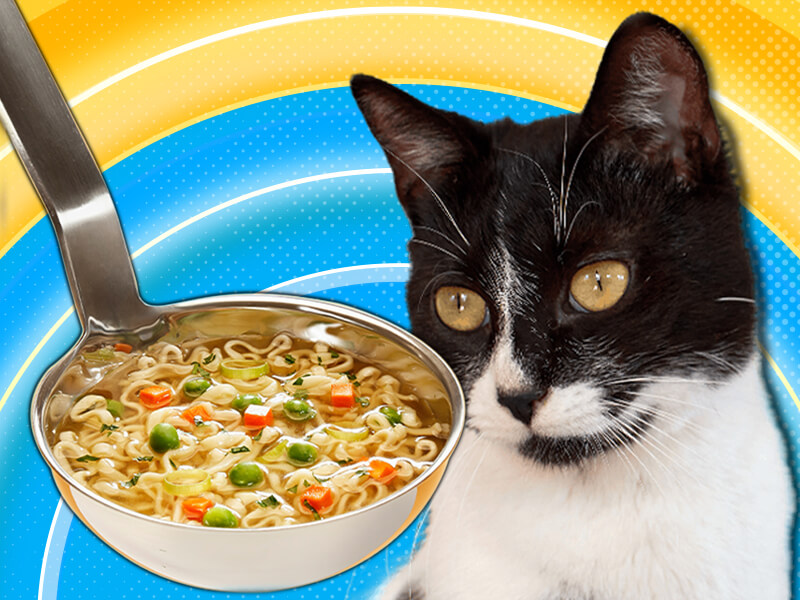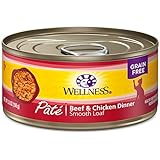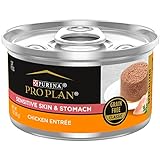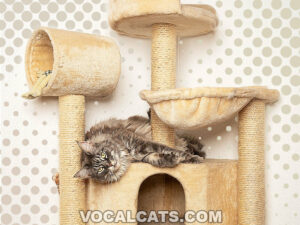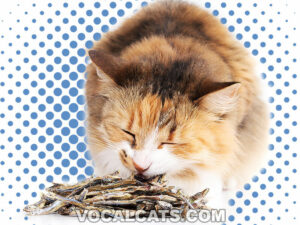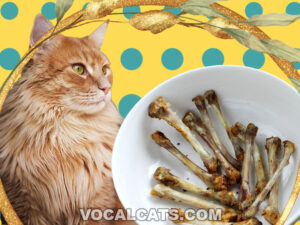Can cats eat Chicken Noodle Soup? No, you shouldn’t give cats Chicken Noodle Soup. Commercially-made Chicken Noodle Soup can contain unsafe ingredients like onions and garlic, which are toxic to cats. Moreover, these soups have a high sodium content, which can cause electrolyte imbalances or kidney problems in felines.
If you’re wondering whether Chicken Noodle Soup will make a tasty and healthy snack for your furry pal, we’ve got you covered. Generally, experts advise homemade cat soups because cat parents can control what goes in the broth. Doing so tends to keep cats safe from harmful ingredients.
So, can my cat eat Chicken Noodle Soup? This article covers all possible aspects of the feline-Chicken Noodle Soup debate. There’s a special focus on nutrition, ingredients, and suitable canned chicken alternatives like the Wellness Complete Health Grain-Free Wet Canned Cat Food. So grab a comfy seat and read on!
Contents
- Can Cats have Chicken Noodle Soup?
- What is Chicken Noodle Soup?
- What is in Chicken Noodle Soup?
- Can Cats Drink Chicken Noodle Soup?
- Is Chicken Noodle Soup Good for Cats?
- Is Chicken Noodle Soup Okay for Cats?
- Is Chicken Noodle Soup Bad for Cats?
- Is Chicken Noodle Soup Safe for Cats?
- Can Kittens Eat Chicken Noodle Soup?
- Can Cats Eat Campbell’s Chicken Noodle Soup?
- Can Cats have Chicken Noodle Soup Broth?
- What Human Food Can Cats Eat?
- Alternatives to Chicken Noodle Soup for Cats
- What Soups Can Cats Eat?
- Is it Safe for Cats to Eat Soup?
- Can Cats Eat Cream of Chicken Soup?
- Can Cats Eat Chicken Soup?
- Can Cats Eat Homemade Soup?
- How to Introduce Cats to Cat Soups and Broths?
- What are the Benefits of Kitten Soup for Young Cats?
- Homemade Cat Soup Recipe
- Easy Homemade LIL Soups for Cats
- My Cat Ate Chicken Noodle Soup! What Should I Do?
- So, Can Cats Eat Chicken Noodle Soup?
- Related Questions
Can Cats have Chicken Noodle Soup?
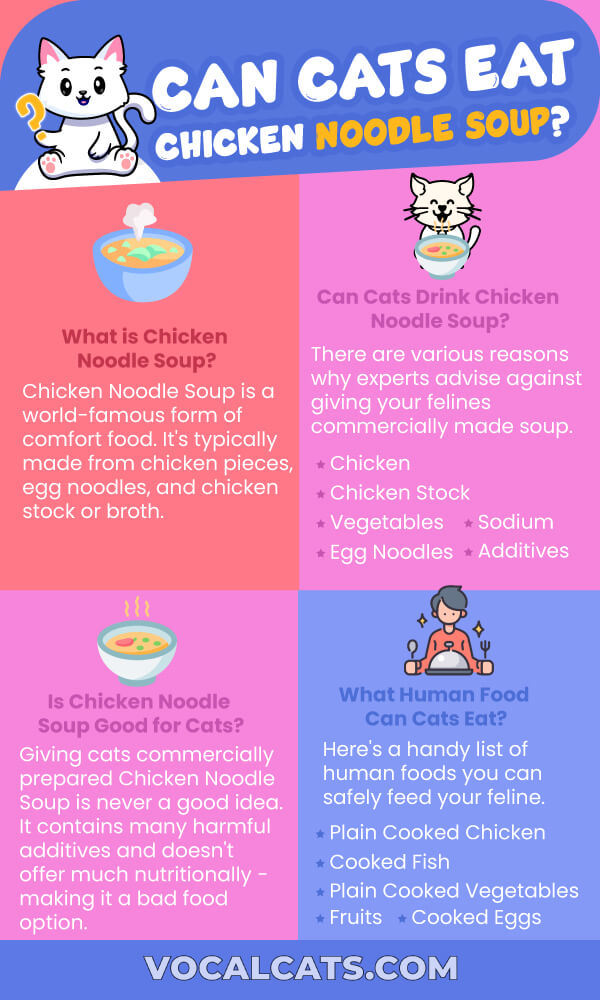
Commercially-made Chicken Noodle Soup isn’t the best treat for your fur baby. That’s because the soup can include non-feline safe ingredients and seasonings, like monosodium glutamate (MSG), soy protein, and garlic.
Aside from that, canned or packet soups pack a hefty punch when it comes to salt. Excessive sodium can make cats sick, so their food should contain little to no salt.
On the other hand, if you have homemade Chicken Noodle Soup cat food in mind, you can feed some to your cat. However, this will only be possible if the soup includes plain chicken broth, plain boiled chicken, and a few strands of spaghetti.
While plain cooked noodles aren’t the best item to serve your cat nutrition-wise, they can have the occasional treat if it appeals to their tastes.
What is Chicken Noodle Soup?
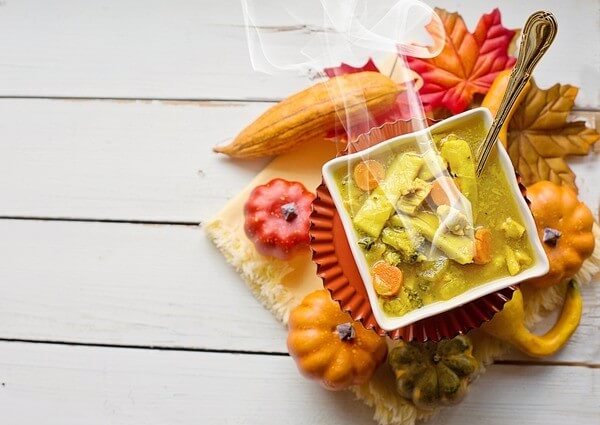
Chicken Noodle Soup is a world-famous form of comfort food. It’s typically made from chicken pieces, egg noodles, and chicken stock or broth. In restaurants, the chicken is often cooked with carrots, celery, garlic, and onions, which add flavor and nutrition to the soup.
The noodles are what make the soup filling. Even though this type of soup is simple in terms of preparation, it can vary in style and taste depending on where it’s served. Some people add herbs to enhance the soup’s flavor, while others prefer adding red chilies to boost the spice level.
Generally, the signature way to make Chicken Noodle Soup is lightly flavored and served piping hot. It’s one of the reasons why the soup remains a popular home remedy for colds and flu.
DON’T MISS: Can Cats Eat Rotisserie Chicken?
What is in Chicken Noodle Soup?
The three main components of Chicken Noodle Soup are chicken broth, shredded chicken breast, and noodles. The soup can include vegetables like carrots, celery, or peas.
At the same time, seasonings can consist of garlic, onions, thyme, oregano, or basil. Since food lovers have come up with several variations of the classic recipe, most recipes will differ due to slight changes.
However, generally, people prefer sticking to the original recipe and sticking to carrots, celery, onions, garlic, shredded white chicken meat, broth, salt, black pepper, and egg noodles. That’s why the soup is tasty, filling, and easy to digest – making it the perfect comfort food option for most.
Nutritional Profile of Chicken Noodle Soup (100 grams)
What’s the nutritional profile of homemade Chicken Noodle Soup? Here’s where you can find out. The table below contains the nutrient info of 100 grams of soup, which roughly translates to 6-7 tablespoons.
| Name, Unit | Amount |
| Calories, cal | 45 |
| Total Fat, g | 1.2 |
| Cholesterol, mg | 3 |
| Sodium, mg | 143 |
| Potassium, mg | 105 |
| Total Carbohydrate, g | 3.5 |
| Protein, g | 2.5 |
Can Cats Drink Chicken Noodle Soup?

Cats shouldn’t drink store-bought Chicken Noodle Soup. There are various reasons why experts advise against giving your felines commercially made soup, and they’re all related to the item’s ingredients and seasonings. Here’s why.
Chicken
Chicken Noodle Soup, be it homemade or otherwise, contains chicken. The only difference is the tinned versions of the soup include dehydrated chicken meat, which takes away some of the nutritional value.
Skinless and boneless chicken meat, plain boiled and shredded, is safe for cats to consume. It contains lots of protein and little fat, which makes it a great treat, as long as it’s fed supplementally, along with your feline’s daily diet.
RECOMMENDED: Can Cats Eat Chicken Bones?
Chicken Stock
Plain chicken stock is also safe for cats. As long as the broth is made at home, without bones, seasonings, and additives like garlic or onions. In fact, vets often advise feeding cats plain chicken broth when they’re suffering from respiratory infections because it’s hydrating and nutritious.
Vegetables
Adding vegetables like celery and carrots to homemade Chicken soup for cats is safe. Your pets can consume these vegetables and derive benefits like Vitamin C, Magnesium, and antioxidants.
However, vegetables like onions and garlic, generally added for flavor in human foods, aren’t at all safe for felines. They’re toxic for your fur babies, and even ingesting the smallest amounts can lead to health problems.
That’s why commercially-made Chicken Noodle Soup is a big no-no for cats. These include both onion and garlic extracts or flavorings.
Additives
Store-bought Chicken Noodle Soup also contains several additions like monosodium glutamate, protein isolates, rice starch, and yeast extracts.
These can all be troublesome ingredients as they can cause various health issues ranging from digestion upsets to allergic reactions.
Sodium
If cats ingest a lot of salt, they tend to fall ill. Giving cats salt can result in dehydration and cause electrolyte imbalances. Store-bought soups are seasoned for human consumption, and feeding them to cats can result in excessive sodium intake.
Egg Noodles
These type of noodles are typically made from (wheat) flour and eggs, making them safe for felines. However, they don’t offer much nutrition and should only be used sparingly if your cat likes their taste.
Is Chicken Noodle Soup Good for Cats?
Giving cats commercially prepared Chicken Noodle Soup is never a good idea. It contains many harmful additives and doesn’t offer much nutritionally – making it a bad food option. However, pet parents can prepare cat soups at home.
Doing so allows you to control what goes in the soup. This way, you can avoid harmful ingredients like onions, garlic, and salt. Also, ensure the chicken meat you use is skinless and boneless.
WANT MORE INFORMATION? Check out Can Cats Eat Chicken Skin?
The broth needs to be plain, without seasonings, and you can add some finely chopped carrots and celery to up the nutritional quotient. With the right ingredients and proper precautions, cat soup at home can make a healthy treat for your fur baby and a break from its regular diet.
Plain Chicken Noodle Soup made at home can offer your pet nutritional advantages like protein, potassium, magnesium, and phosphorus. It’s also hydrating, which makes it suitable for cats who avoid drinking water.
Is Chicken Noodle Soup Okay for Cats?
Cat soup treats like homemade Chicken Noodle Soup can be made feline-friendly if it consists of plain, unseasoned, and well-cooked chicken and noodles without added salt or spices.
However, it should only be an occasional treat, not a regular part of a cat’s diet. Whether canned or packaged, store-bought soup for cat(s) is generally not recommended.
It often contains onions, garlic, and high sodium levels, which can be toxic or harmful to cats. Additionally, commercial soups can have preservatives and additives that are unsuitable for feline consumption.
Cats have unique dietary needs centered around high-quality protein sources. Their digestive systems can’t handle many ingredients commonly found in Chicken Noodle Soup.
It’s safer and healthier to provide your pet with a balanced commercial cat food that meets its nutritional requirements adequately.
Is Chicken Noodle Soup Bad for Cats?
Store-bought Chicken Noodle Soup is unsuitable for cats due to several reasons. Many commercial soups contain onions and garlic, which are toxic to felines and lead to gastrointestinal distress, anemia, and other serious health issues.
Moreover, the high sodium content in these soups can be detrimental to a cat’s kidneys and overall health, as cats have a low salt tolerance.
The egg noodles, often an important component, primarily consist of carbohydrates, which are not a substantial part of a cat’s natural diet as obligate carnivores.
Your fur baby needs a diet rich in animal proteins rather than carbohydrates. Feeding chicken noodle soup to cats risks providing inadequate nutrition and exposing them to harmful substances.
If you’re set on treating your cat with soup as a snack, it’s best to prepare it yourself. That way, you can make the soup feline-safe and avoid all harmful ingredients.
READ NEXT: Can Cats Eat Chicken Nuggets?
Is Chicken Noodle Soup Safe for Cats?
Commercial Chicken Noodle Soup is not safe at all for felines. Besides having toxic ingredients like onions and garlic, these soups also contain additives like MSG, soy protein, and high levels of sodium.
However, if pet parents prepare the soupy cat food at home, they can take all the necessary precautions to make it feline-friendly. For instance, using boneless and skinless chicken meat is a must. The chicken broth must also be homemade and free of flavorings and salt.
If you’re wondering, Is it safe for cats to eat noodles? The answer’s yes. Felines can eat egg noodles without issues as long as the noodles are plain boiled and well-cooked. Although noodles don’t offer much nutritionally, a few noodle strands won’t harm your fur baby.
Can Kittens Eat Chicken Noodle Soup?
Feeding Chicken Noodle Soup to a kitten is not advisable. Kittens have delicate and developing digestive systems, and their nutritional needs differ from those of mature cats.
Be it homemade or store-bought, Chicken Noodle Soup may contain unsuitable and potentially harmful ingredients for kittens.
This includes items like garlic, onions, and salt. Even the smallest amount of these ingredients in your kitten’s system can wreak havoc on its health.
Giving your kittens vet-approved and age-specific commercial cat food and treats is best. These are specifically formulated to meet your pet’s daily nutritional requirements and help avoid imbalances.
The only suitable type of kitten soup is plain, homemade chicken broth. Be sure to serve the soup after running through a sieve to remove any bones or fragments. Finally, consult your vet before making any changes or making your kitten’s diet.
Can Cats Eat Campbell’s Chicken Noodle Soup?
If you’ve been waiting for a positive answer to can cats eat Campbell’s chicken noodle soup, we’re afraid the answer’s no. Like most other commercially made types of Chicken Noodle Soup, the Campbell variety is manufactured for human consumption.
It includes ingredients like dehydrated onions, dehydrated garlic, MSG, soy isolates, and other unspecified spices. That means the soup is unfit to qualify for the cat soups and broths category off the bat.
Besides all the problematic ingredients listed above, the sodium content in 120ml of condensed Campbell Chicken Soup equals a whopping 890 mg. That’s almost 39 percent of a human’s recommended sodium intake on a daily basis.
That much salt in your feline’s system can cause all sorts of troubles, including electrolyte imbalances, muscle spasms, stomach upsets, and kidney failure.
The same 120ml measure includes approximately 8 grams of carbs compared to 3 grams of protein. Nutritionally, the soup offers nothing for felines and has many possible severe health problems attached. Not worth the risk at all.
Can Cats have Chicken Noodle Soup Broth?
While it’s generally safer than feeding them Chicken Noodle Soup, giving your cat soup broth should still be approached with caution.
Chicken Noodle Soup broth may seem less harmful because it’s mostly liquid, but it can still contain ingredients unsuitable for feline ingestion.
High Sodium Content
Broth is often high in sodium, which can be harmful to cats. Excessive sodium intake can strain their kidneys and lead to health issues.
Seasonings
Chicken soup broth may contain seasonings like onions and garlic, which are toxic to cats. Even small amounts of these ingredients can be seriously detrimental.
Nutritional Imbalance
While chicken stock or broth may contain some protein, it lacks essential nutrients that cats need for their overall health. Cats require a balanced diet with specific vitamins, minerals, and amino acids.
So, the answer to this question: Can you give felines chicken soup broth is the same as this question: Can a cat eat Chicken Noodle Soup? It’s not recommended, and you should avoid it at all costs.
If you want to give your fur baby a special treat, feeding it plain, unseasoned chicken broth prepared at home (without added salt, onions, or garlic) is safer.
However, broth should still be a rare treat and not a regular part of their diet. Always consult your veterinarian on what foods and treats are safe for your pet to ensure they receive the proper nutrition and stay safe.
What Human Food Can Cats Eat?
On the whole, cat enthusiasts should avoid giving felines human food. Not only are some human foods toxic to cats, but most aren’t suitable even from a nutritional perspective.
Having said that, you can add certain food items to your fur baby’s regular diet to add some variety. Here’s a handy list of human foods you can safely feed your feline.
- Plain Cooked Chicken or Turkey: Lean proteins are safe and can be a tasty cat treat. However, never give your pet raw meat. Always use skinless and boneless lean, white meat and boil it well before feeding your cat.
- Cooked Fish: Small amounts of cooked fish like mackerel, salmon, or tuna can be given as an occasional treat. These contain Omega-3 Fatty Acids, which are particularly good for skin and coat health.
- Cooked Eggs: Plain, cooked eggs are another excellent source of protein and are beneficial for cats. Eggs are also easy on the tummy, making them doubly advantageous.
- Plain Cooked Vegetables: Cats can occasionally eat small amounts of cooked vegetables like Brussel sprouts, pumpkin, carrots, or broccoli. These veggies also add fiber to your pet’s diet, which aids digestion.
- Fruits: Felines can have tiny amounts of fruits like kiwi, cantaloupe, or watermelon but as rare treats. If your fur baby likes sweets, a juicy snack on a hot summer day will make its day.
Alternatives to Chicken Noodle Soup for Cats
Cat parents looking for healthier and safer alternatives to Chicken Noodle Soup for Cats have plenty of options to choose from. For example, you can create a healthy and nutritious snack at home with cat-friendly ingredients.
However, if you’re short on time and don’t want to compromise on your pet’s health, you can turn to the Wellness Complete Health Grain-Free Wet Canned Cat Food. The product is available in various flavors and textures to appeal to kitties of all kinds.
But that’s not all the Wellness Grain-free Wet Canned Food has to offer. It includes a blend of high-quality proteins, prebiotic fiber sources, and omega-3 and 6 Fatty Acids to promote skin health.
The Grain-free formula makes it safe for pets with food allergies and contains various vitamins and minerals like vitamins A and B12, potassium, and zinc.
Lastly, the canned food is suitable for felines of all ages. It’s the perfect solution for cat owners stressing over what can cats eat safely.
What Soups Can Cats Eat?
Cats can eat certain soups, but it’s crucial to choose safe and beneficial options for their health. When considering cat soups, keep these guidelines in mind:
Commercial Cat Soups
Some pet stores offer cat-specific broths designed with feline health in mind. These typically lack harmful ingredients and can be a tasty and hydrating treat.
Chicken or Turkey Broth
Plain, homemade chicken or turkey broth without added salt, onions, garlic, or other seasonings can be suitable. It can help keep your cat hydrated and may be beneficial if they have a mild illness or loss of appetite.
Avoid High-Sodium Soups
Cats have a low salt tolerance, so avoid soups with excessive sodium, which can harm their kidneys. Always make sure to check the salt content of store-bought cat soups. Avoid sodium if you’re preparing the cat soup food at home.
Is it Safe for Cats to Eat Soup?
It’s generally safe for felines to eat certain soups like homemade plain chicken or turkey broth in moderation.
However, many commercial soups contain ingredients harmful to cats, like onions and garlic. High sodium levels can also be detrimental, which is why these soups should be avoided.
Can Cats Eat Cream of Chicken Soup?
Cats should not eat cream of chicken soup or any creamy soups. These soups are high in dairy, while many cats are lactose intolerant, making creamy for cats a no-no.
Feeding your pet dairy products can lead to digestive upset and diarrhea. Further, these soups often contain seasonings like onions and garlic, which are toxic to cats.
Can Cats Eat Chicken Soup?
Does your search history include the terms ‘Chicken soup for cats: can you give chicken soup to cats?’ If yes, then you might want to pay attention here.
Feeding your felines store-bought Chicken Soup is no option, and many pet parents don’t have the time to create meals for their pets at home. So, what’s a safe and healthy alternative?
Try the Purina Pro Plan Sensitive Skin and Stomach Cat Chicken. That may sound like a mouthful, but the canned food offers brilliant benefits like specialized nutrition for cats with sensitive tummies.
Purina’s Pro Plan Sensitive Skin and Sensitive Stomach is available in three flavor variations and prebiotic fiber to care for your fur baby’s gut health.
Can Cats Eat Homemade Soup?
Homemade soup for cats can be safe if it consists of plain, cooked proteins like chicken or turkey without seasonings or harmful ingredients. Still, asking your vet’s input before adding anything new to your feline’s diet is best.
How to Introduce Cats to Cat Soups and Broths?
When introducing your fur baby to a cat soup, it’s best to start small. It’s also essential to ensure the broth or soup you’ve selected or made for your feline is plain, contains boneless and skinless lean protein, and has no seasonings whatsoever.
You can gradually increase the serving size once your cat gets used to the soup’s taste and texture. This will also help avoid tummy upsets in case your pet has a sensitive tummy.
What are the Benefits of Kitten Soup for Young Cats?
You can feed kittens over two months of age plain chicken broth with skinless and boneless white meat. At this point, their systems have developed enough to digest such food and derive benefits from it, such as amino acids, proteins, fat, iron, etc.
Homemade Cat Soup Recipe
The easiest and safest cat soup is plain chicken soup, and here’s how you make it. But first, let’s go over the ingredients list quickly. For this recipe, you’ll need:
- 2 chicken breast pieces (cubed)
- 1 carrot (finely chopped)
- 1 celery stalk (finely chopped)
Place all the ingredients in a pot and add enough water to submerge the ingredients. Turn on the heat and allow the soup to cook on a medium flame. Once the soup comes to a boil, turn off the heat and let the soup cool. Serve it to your pet at room temperature.
Easy Homemade LIL Soups for Cats
If your Soup for cats recipe curiosity still hasn’t been satisfied, here’s another stellar recipe for your feline cookbook. You’ll need the following ingredients:
- 1 deboned tuna filet (cubed)
- 4 to 5 cups plain homemade chicken broth
Start by adding the tuna cubes and chicken broth to a pan. Turn on the heat and let the contents cook on slow to medium heat.
Once the tuna appears cooked, turn off the heat and let the soup cool. Be sure to mash the tuna cubes with a fork and check for fish bones before feeding your cat. Add some fishy broth along with the meat for your pet to enjoy.
My Cat Ate Chicken Noodle Soup! What Should I Do?
If you suspect your cat has eaten Chicken Noodle Soup, it’s best to have it checked out by the vet immediately. This is twice as true for kittens.
Chicken Noodle Soup (for human consumption) contains toxic ingredients for cats, so you should never take a chance and head over to the veterinarian to have your feline looked at ASAP.
So, Can Cats Eat Chicken Noodle Soup?
We’re at the end of our guide and hope all your queries have been answered. Commercial Chicken Noodle Soup is never an option for felines.
However, you can make homemade soup for your fur baby without any seasonings or additives to make it safe for cat consumption. Always consult your vet before changing your pet’s diet, and stick to good-quality cat food as a staple.
Being a pet parent is no easy feat. You’re responsible for the health and well-being of your feline, which is why playing it safe regarding your pet’s diet is always best. Isn’t it better to err on the side of caution than regret your decision later?
Related Questions
As long as the Chicken and Rice Soup is homemade, plain, and free of seasonings, salt, and choking hazards, you can feed it to your feline as an occasional treat.
You shouldn’t give your cat commercial Chicken Noodle Soup and Rice. Instead, try making plain chicken soup at home (without any toxic ingredients, seasonings, salt, or choking hazards) and mix rice or noodles as a filling component for a cat treat.
DISCLAIMER: THIS WEBSITE DOES NOT PROVIDE MEDICAL ADVICE
The information, including but not limited to, text, graphics, images and other material contained on this website are for informational purposes only. No material on this site is intended to be a substitute for professional veterinary advice, diagnosis, or treatment. Always seek the advice of your veterinarian or other qualified health care provider with any questions you may have regarding dietary needs.
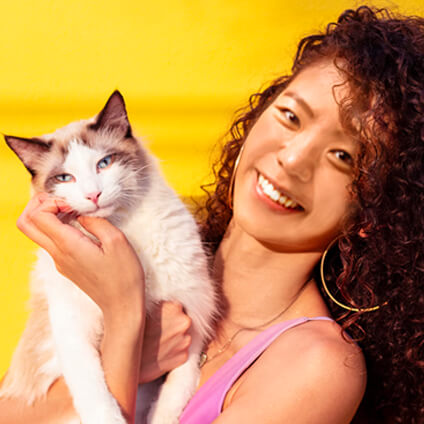
With over five years of specialized experience as an animal writer, my expertise lies in cat nutrition, health, behavior, grooming, and training. I am dedicated to delivering helpful and informative content that caters to the well-being of our feline friends. My primary goal is to empower pet owners with knowledge and ensure our feline companions thrive in health and happiness. In my free time, I love volunteering at local cat rescue centers.
